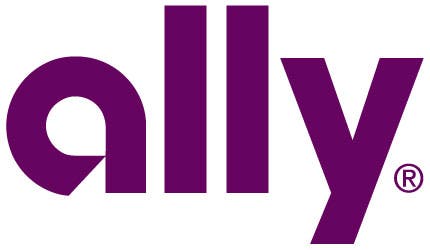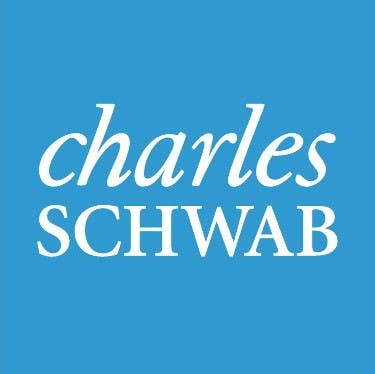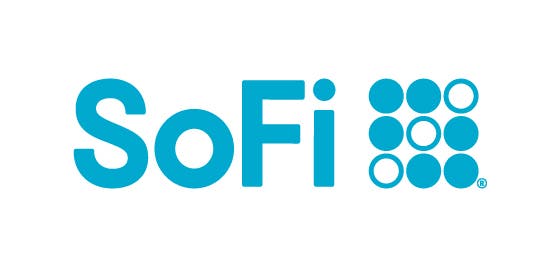Vanguard review
The Bankrate promise
At Bankrate we strive to help you make smarter financial decisions. While we adhere to strict , this post may contain references to products from our partners. Here's an explanation for .
Vanguard is popular with investors because of its low-cost funds, but its brokerage offering may also appeal to investors who are primarily focused on the long term. You’ll get commission-free trading on thousands of ETFs and stocks, while also having access to more than 3,000 no-transaction-fee mutual funds. Vanguard’s popular Portfolio Watch tool lets you evaluate your overall portfolio to see where adjustments might be needed.
If you’re an active trader, Vanguard is unlikely to be the best fit for you, however, due to its basic trading platform and higher-than-average options commissions. Interactive Brokers or Charles Schwab’s thinkorswim platform are likely better fits for frequent traders.
If you’re looking for help building a portfolio, Vanguard does offer a robo-advisor, Vanguard Digital Advisor, that will construct your portfolio based on your goals and risk tolerance.
We want to know what you think about Vanguard
Do you have experience with Vanguard? Let us know your thoughts.
Overview of Vanguard

Overview
Vanguard remains a low-cost leader for buy-and-hold investors looking to build wealth over time rather than trading their way to riches.
- Fee-free fund investing
- Passive investing
- Long-term investing
Pros: Where Vanguard stands out
Vanguard Portfolio Watch
Vanguard Portfolio Watch is a tool that automatically examines your portfolio to see how it compares to the criteria that you and Vanguard have set. The goal is to make sure your assets are diversified and minimize risks where possible. You can include not only your Vanguard assets, but all holdings so that you can get a comprehensive picture of your financial life and where you might have unidentified risks.
Once you’ve loaded your holdings into the tool, Portfolio Watch will give you a breakdown of what kinds of funds you own by a number of factors, for example, company size or investing style (value vs. growth). Then if there’s a place where you need more exposure — say, you own too many funds invested in small companies — it can recommend the funds you need to purchase to even out your portfolio. It’s a neat tool to get a broad perspective on what you own and what you might like to own.
Community reviews
Where did this quote come from?
Our focus at Bankrate is on delivering accurate content and the right context for making well-informed financial decisions.
We gather real quotes from real people through surveys, interviews, and testimonials from consumers like you who have actual experience with these products. We then hand-pick what to feature to ensure credibility and relevance.
Low-cost funds
Vanguard has long been synonymous with low-cost funds, and that tradition continues. In addition to its own ETFs, Vanguard’s no-transaction-fee mutual funds number more than 160.
Whether you choose one of its mutual funds or ETFs, you can be sure you’re getting a good deal. Besides not charging any sales load, Vanguard’s funds have among the lowest expense ratios in the industry, fees that could otherwise really eat into your returns over time.
Vanguard says that its average fund (mutual funds and ETFs) has an expense ratio of a razor-thin 0.07 percent. That means you’ll pay just $7 annually on average for every $10,000 you have invested in its funds. That compares to 0.44 percent across the rest of the industry, based on 2024 data from Morningstar and Vanguard. That’s a huge advantage for Vanguard, and increases your average annual return by nearly one-half of a percent annually.
The average ETF expense ratio was even cheaper on Vanguard’s ETFs, at just 0.05 percent, compared to 0.22 percent for the industry as a whole in 2024.
Of course, you won’t have to be a Vanguard customer to buy its funds, but its no-fee commission structure makes it easier and cheaper to do so.
Bankrate staff insights
Where did this quote come from?
Our focus at Bankrate is on delivering accurate content and the right context for making well-informed financial decisions.
We gather real quotes from real people through surveys, interviews, and testimonials from consumers like you who have actual experience with these products. We then hand-pick what to feature to ensure credibility and relevance.
Vanguard dashboard
No-transaction-fee mutual funds
Vanguard’s mutual fund offering is among the best in the industry, and you won’t have to worry about excessive fees. More than 160 Vanguard funds and about 3,000 funds from other firms are available without transaction fees. That compares nicely to some of the top players in the industry, such as Charles Schwab, which has more than 4,000 no-transaction-fee funds. If mutual funds are likely to be your main investment vehicle, Vanguard is a solid broker choice.
Commission-free stocks and ETFs
Vanguard is among the major online brokerages that offer commissions on stocks and ETFs at $0. This simple pricing structure is in line with all the major online players.
A nice perk that could be overlooked is that Vanguard does not charge you to place an order of its own funds (either mutual funds or ETFs) by phone, unlike many other brokers. However, you’ll need at least $1 million in Vanguard ETFs and mutual funds to take advantage of this service. Phone orders from accounts with less than $1 million in Vanguard funds will be charged a $25 fee.
Cons: Where Vanguard could improve
Slow account-opening process
Incredibly, opening an account at Vanguard may require you to phone in to a representative after you fill in your personal and financial details online. Even then, it may take up to a week to receive — by postal letter — confirmation that your account has been approved and opened. This approach feels unbelievable in a world where virtually all online brokers can get you up and running in about 15 minutes.
For many potential customers, this process could be a dealbreaker, especially when they have so many good alternatives available. At least the Vanguard phone reps were incredibly helpful and polite.
Complex tiered options trading commissions
Vanguard’s commission structure for options is somewhat complex, because it has several tiers depending on how much you have invested in Vanguard’s ETFs and mutual funds. While the broker removed this tiered system for stocks and ETFs, it’s maintained some of it for options commissions.
It’s a crucial point to note: it’s not just how much you have in the brokerage, but rather how much you have invested in its funds that determine your cost to trade options.
- If you have less than $1 million in Vanguard funds, options trades cost $1 per contract.
- From $1 million to $5 million, the first 25 options trades in a year are free and subsequent trades cost $1 per contract.
- From $5 million and up, the first 100 options trades are free, and $1 per contract thereafter.
The options commissions sit at the high end of the industry, where the standard price is $0.65 per contract. You can find options even cheaper at TradeStation ($0.60 a contract) or completely free at Firstrade, Robinhood or Webull.
High minimums for mutual funds
Mutual funds typically require an initial investment of several thousand dollars, and Vanguard is no different. The minimum investment for target date funds is $1,000, and it moves to $3,000 for most index funds and actively managed mutual funds. That’s quite a threshold for new investors looking to get started, especially for a fund company that touts its investor-friendly cred.
After you make that initial purchase, you won’t face a minimum ongoing purchase amount, however.
Pesky account fees
Vanguard is a low-cost leader when it comes to its funds, but it’s moved somewhat in the opposite direction recently when it comes to some account fees. Vanguard hits customers for $100 if they transfer an account or close one out, unless they’re moving at least $5 million in assets. While many brokerages charge to transfer investment funds — and $75 and even $100 is not an unusual price to pay there — virtually no broker charges to simply close an account. Rival Fidelity Investments gets by without charging customers a transfer or close-out fee, however.
Vanguard also charges a $25 account fee annually for accounts. That’s a pesky charge when virtually every other brokerage has eliminated account or inactivity fees. However, the good news is that customers can easily eliminate this fee by agreeing to receive all communications electronically, or they’ll receive this waiver if they maintain more than $5 million in Vanguard assets. There are also fees for each Vanguard fund held in certain retirement accounts, but many can be waived if you have at least $5 million in qualifying Vanguard assets.
Lackluster trading platform
Vanguard is not a broker for active traders, so the broker does not offer anything more than a basic order interface. For the right kind of investor, the lack of a trading platform is not detrimental in the least, but it certainly doesn’t help the company in the eyes of active investors. If you’re looking to trade just a few times per year or mostly buy funds, Vanguard should still work adequately for you.
“The primary advantage of Vanguard is low costs,” says a post on the investing forum Bogleheads. “You're not going to get a lot of extras for that. I keep an eye on my investments but I don't have to do much, so for me Vanguard works fine.”
Limited ability to trade fractional shares
If you’re buying a Vanguard ETF on Vanguard or a mutual fund, you’ll be able to buy fractional shares. Vanguard introduced fractional shares trading in its own ETFs not long ago, but fractional shares trading in stocks and non-Vanguard ETFs is still not available. This may change at some point in the future, but until then small-money investors will miss out on this popular feature. Dividends from stocks, ETFs and mutual funds can be reinvested into fractional shares, however.
Video Overview: Who Should Consider Vanguard

All rates, features and offers shown in the media on this review were accurate at the time they were procured, but may have changed since recording. The content may also contain views and opinions that do not reflect those of Bankrate.

















